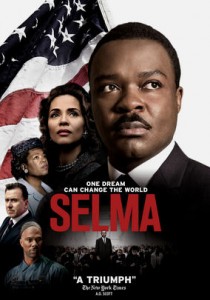Downsizing-2017
Director Alexander Payne
Starring Matt Damon, Hong Chau
Scott’s Review #842
Reviewed December 14, 2018
Grade: B
Downsizing (2017) appeared on many critics’ top ten lists for the year, but it did not resonate well with the average viewer. Part of this discrepancy could have been the way the film was marketed.
Despite having Kristen Wiig among its cast, the film is NOT a comedy but a social commentary with some science-fiction and dramatic elements.
Downsizing has a wonderful and thought-provoking premise, but it ultimately fails to piece together all its parts in a completely satisfying way, leaving an erratic and disjointed result.
The elements are all there—a charismatic lead actor (Damon), an inventive, socially relevant premise, and a humanistic and beautiful message.
The film also contains some gorgeous cinematic treats of picturesque Norway that will make one melt if watched on the big screen.
The film has enough positives to recommend without it being truly great.
The story begins as a Norwegian scientist discovers a way to solve the world’s overpopulation state and global warming problems with a discovery that shrinks people, causing them to use few resources.
Paul and Audrey Safranek (Damon and Wiig) decide to undergo the procedure and begin a new life in a gorgeous community designed for small people. When Audrey bails at the last minute, leaving Paul alone, he must forge ahead with a lonely life, unable to be transformed from small to large.
He meets Ngoc Lan (Chau), a Vietnamese activist who, through her selflessness, changes his life forever. Paul realizes he does have a purpose after all.
The film’s positives are mostly in its individual components. It is true that the modern world suffers from overpopulation, and director Alexander Payne paints a dire picture of the eventual result. This gives the film a left-leaning environmental opinion that I relish.
I was immediately engaged in Payne’s humanistic approach and the possibilities of a new world with no suffering and riches for all. Of course, this is not sustainable or realistic, as the film shows.
The romantic dynamic is also a significant win. The first half features Paul and Audrey as the romantic couple, a likable pair who struggle with bills and care for planet Earth.
Suddenly, this changes and Audrey is discounted from the equation in favor of Paul and Ngoc Lan. An unexpected item, their romance is a slow buildup, seemingly opposite types of people. He is laid-back and thoughtful, and she is brash and outspoken, yet they work wonderfully as a couple.
As a viewer, I became wholly invested in them by the closing credits.
Newcomer Huang Chau (Ngoc Lan) stands out and nearly upstages Damon. The young actress garnered a Golden Globe nomination for this role and deservedly so. There are far too few good roles for Asian actors, so Chau hits the jackpot with this part.
Her character is sympathetic yet tough. Once an outspoken advocate, she endured prison only to lose a leg and be reduced to a house cleaner in her new world.
Payne makes the point that a new society does not equate to joy, which is the film’s crux. At first, the community is lavish with luxurious homes and idyllic surroundings, but when Paul meets Ngoc Lan and sees her world of pain, starvation, and neglect, he is dumbfounded.
This sad reality leads him to make rash decisions about himself and his future.
Where Downsizing misses the boat is with the execution. As strong as the premise is, the story meanders. From Paul and Audrey’s mundane life in Nebraska to the new society to the slums to the introduction of the world ceasing to exist and finally, another world is created, there is too much going on.
The dots never connect, leaving the overall experience of Downsizing erratic.
Christoph Walz deserves a better role than Dusan, an aging Serbian party boy. His character is annoying and a weak attempt at portraying spoiled white men with all the advantages. He is unnecessary and does not work.
Downsizing (2017) is quite a brave effort, with an ingenious premise and a worthwhile message. I recommend the film for these reasons as Payne attempts to tell a story never told before, which is to be championed.
The elements do not add up, and the film lacks a solid structure, but as a whole, it is to be admired for what it intends to do.

